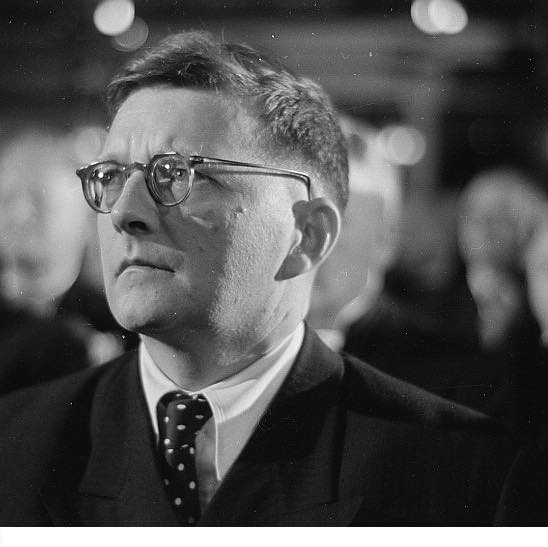| Author |
 Topic Search Topic Search  Topic Options Topic Options
|
ExittheLemming 
Forum Senior Member


Joined: October 19 2007
Location: Penal Colony
Status: Offline
Points: 11415
|
 Posted: January 16 2011 at 14:48 Posted: January 16 2011 at 14:48 |
|
Re Intellectual property rights - If someone uses say, logs and straw to build a house and
1. other people copy this idea and also build houses
2. other people think of the idea themselves independently of the originator
Would the originator be able to copyright or patent his idea?
Or would this lead to a coercive scarcity?
(e.g. there is no existing copyright law applicable to song titles so I could publish a song called 'Close to the Edge' but if my melody bore more than a passing resemblance to 'Roundabout' but I had never even heard the latter I could be sued.)
What is the Libertarian view on such things?
|
 |
Equality 7-2521 
Forum Senior Member


Joined: August 11 2005
Location: Philly
Status: Offline
Points: 15784
|
 Posted: January 16 2011 at 14:55 Posted: January 16 2011 at 14:55 |
It depends. Ayn Rand was a strong supporter of IP rights. Rothbard supported a much more limited notion of what falls under IP. Some completely reject any notion of IP.
I don't have a clearly defined opinion. Somethings are clearly not like the house scenario that you mentioned. That will of course generate an unnatural scarcity. Things with the arts get a bit more complicated. Without IP the arts as we know it wouldn't exist. However, that isnt necessarily a problem. Most arguments that say it is seem to assume that the creation of music should be a something that is doable as a means to sustain one's self. Of course that's not even quite accurate as the way the industry has been changing, with free downloads and donation based profit, no IP laws are required at all.
|
|
"One had to be a Newton to notice that the moon is falling, when everyone sees that it doesn't fall. "
|
 |
The T 
Special Collaborator


Honorary Collaborator
Joined: October 16 2006
Location: FL, USA
Status: Offline
Points: 17493
|
 Posted: January 16 2011 at 15:12 Posted: January 16 2011 at 15:12 |
 Epignosis wrote: Epignosis wrote:
T, I didn't know you were a vegetarian.
|
I'll be back later, but on this (which is brief):
We're heading in that direction. There's just a few animal meats I eat these days. I'm trying to eliminate that cognitive dissonance off my psyche.
|
|
|
 |
ExittheLemming 
Forum Senior Member


Joined: October 19 2007
Location: Penal Colony
Status: Offline
Points: 11415
|
 Posted: January 16 2011 at 15:13 Posted: January 16 2011 at 15:13 |
 Equality 7-2521 wrote: Equality 7-2521 wrote:
It depends. Ayn Rand was a strong supporter of IP rights. Rothbard supported a much more limited notion of what falls under IP. Some completely reject any notion of IP.
I don't have a clearly defined opinion. Somethings are clearly not like the house scenario that you mentioned. That will of course generate an unnatural scarcity. Things with the arts get a bit more complicated. Without IP the arts as we know it wouldn't exist. However, that isnt necessarily a problem. Most arguments that say it is seem to assume that the creation of music should be a something that is doable as a means to sustain one's self. Of course that's not even quite accurate as the way the industry has been changing, with free downloads and donation based profit, no IP laws are required at all. |
When you say do-able for an individual's own satisfaction I would probably agree but the whole thing about the arts is that the scarcity arrives from there being a very limited amount of producers the hobbyist will agree to purchase from. If that were not the case we'd all be doing it? You are certainly right that the entertainment industry and our means of sourcing art is changing rapidly, but what I think will remain is the unchanging fact that more people are willing to pay to see David Beckham do his day job than they would mine (finance officer - yawn) 
Edited by ExittheLemming - January 16 2011 at 15:16
|
 |
Equality 7-2521 
Forum Senior Member


Joined: August 11 2005
Location: Philly
Status: Offline
Points: 15784
|
 Posted: January 16 2011 at 15:21 Posted: January 16 2011 at 15:21 |
 ExittheLemming wrote: ExittheLemming wrote:
 Equality 7-2521 wrote: Equality 7-2521 wrote:
It depends. Ayn Rand was a strong supporter of IP rights. Rothbard supported a much more limited notion of what falls under IP. Some completely reject any notion of IP.
I don't have a clearly defined opinion. Somethings are clearly not like the house scenario that you mentioned. That will of course generate an unnatural scarcity. Things with the arts get a bit more complicated. Without IP the arts as we know it wouldn't exist. However, that isnt necessarily a problem. Most arguments that say it is seem to assume that the creation of music should be a something that is doable as a means to sustain one's self. Of course that's not even quite accurate as the way the industry has been changing, with free downloads and donation based profit, no IP laws are required at all. |
When you say do-able for an individual's own satisfaction I would probably agree but the whole thing about the arts is that the scarcity arrives from there being a very limited amount of producers the hobbyist will agree to purchase from.
If that were not the case we'd all be doing it? You are certainly right that the entertainment industry and our means of sourcing art is changing rapidly, but what I think will remain is the unchanging fact that more people are willing to pay to see David Beckham do his day job than they would mine (finance officer - yawn)
|
I agree. I was pointing out that the industry would be forced to adapt without IP laws, but it would not be destroyed as some suggest.
Generally I'm completely against IP, to answer your question more directly. But like I said I'm not so refined on this issue.
|
|
"One had to be a Newton to notice that the moon is falling, when everyone sees that it doesn't fall. "
|
 |
The T 
Special Collaborator


Honorary Collaborator
Joined: October 16 2006
Location: FL, USA
Status: Offline
Points: 17493
|
 Posted: January 16 2011 at 19:46 Posted: January 16 2011 at 19:46 |
|
But IP are I think a natural extension of property rights, if we assume you have the right to own the fruits of what you produce. Of course the arts are so, we can say, irrelevant to sustain any of our basic rights (like the one to live) that we can assume is just a leisure activity. Yet it is not one for the artist, for whom is as important as making things for thw manufacturer or planning buildigs for the architect. What I would assume is that said rights should start and end with the person. If the person dies, so do his rights, unless he transfers them while still alive to his heirs or whoever he wants. Of course this second person wouldn't be able to the same because if not it could be done ad nauseaum till eternity. Once the original benefitiary dies, the work is in the "public domain" or the formula can be used by anyone. That will though have great implications for corporations that rely on their trademarks and secret formulas to survive (famous drink here). Though in the end even this will get solved by itself: anyone could copy this formula but someone will be the best using it, and the original owner will still be able to beat the competition with a better product or by adapting and innovating.
But then the entire thing of actual physical property righs and inheritance would create an incongruence here. Damn is this difficult, trying to make everything make sense.
|
|
|
 |
Equality 7-2521 
Forum Senior Member


Joined: August 11 2005
Location: Philly
Status: Offline
Points: 15784
|
 Posted: January 16 2011 at 20:36 Posted: January 16 2011 at 20:36 |
 The T wrote: The T wrote:
But IP are I think a natural extension of property rights, if we assume you have the right to own the fruits of what you produce. Of course the arts are so, we can say, irrelevant to sustain any of our basic rights (like the one to live) that we can assume is just a leisure activity. Yet it is not one for the artist, for whom is as important as making things for thw manufacturer or planning buildigs for the architect. What I would assume is that said rights should start and end with the person. If the person dies, so do his rights, unless he transfers them while still alive to his heirs or whoever he wants. Of course this second person wouldn't be able to the same because if not it could be done ad nauseaum till eternity. Once the original benefitiary dies, the work is in the "public domain" or the formula can be used by anyone. That will though have great implications for corporations that rely on their trademarks and secret formulas to survive (famous drink here). Though in the end even this will get solved by itself: anyone could copy this formula but someone will be the best using it, and the original owner will still be able to beat the competition with a better product or by adapting and innovating.
But then the entire thing of actual physical property righs and inheritance would create an incongruence here. Damn is this difficult, trying to make everything make sense. |
You own what you produce. You don't own the method of production. If I invent a drug, I own that drug I just made. If you follow me and make the identical drug, how can I really claim ownership to that?
I own my house. If you take a photo of it, I don't own that photo. You can distribute that. I think mp3 files are similar.
It's a tricky area, but just saying you own what you make doesn't clear it up.
|
|
"One had to be a Newton to notice that the moon is falling, when everyone sees that it doesn't fall. "
|
 |
thellama73 
Collaborator


Honorary Collaborator
Joined: May 29 2006
Location: United States
Status: Offline
Points: 8368
|
 Posted: January 16 2011 at 22:35 Posted: January 16 2011 at 22:35 |
|
I have mixed feelings on IP laws. On the one hand, they are state sanctioned monopolies which re bad for competition and consumers, as well as freedom. On the other hand, without them people would be much less likely to invest millions in R&D for much needed inventions, particular pharmaceuticals. I guess I support having some basic IP protections but I think what we have now is excessive.
|
|
|
 |
ExittheLemming 
Forum Senior Member


Joined: October 19 2007
Location: Penal Colony
Status: Offline
Points: 11415
|
 Posted: January 16 2011 at 23:49 Posted: January 16 2011 at 23:49 |
 The T wrote: The T wrote:
But IP are I think a natural extension of property rights, if we assume you have the right to own the fruits of what you produce. Of course the arts are so, we can say, irrelevant to sustain any of our basic rights (like the one to live) that we can assume is just a leisure activity. Yet it is not one for the artist, for whom is as important as making things for thw manufacturer or planning buildigs for the architect. What I would assume is that said rights should start and end with the person. If the person dies, so do his rights, unless he transfers them while still alive to his heirs or whoever he wants. Of course this second person wouldn't be able to the same because if not it could be done ad nauseaum till eternity. Once the original benefitiary dies, the work is in the "public domain" or the formula can be used by anyone. That will though have great implications for corporations that rely on their trademarks and secret formulas to survive (famous drink here). Though in the end even this will get solved by itself: anyone could copy this formula but someone will be the best using it, and the original owner will still be able to beat the competition with a better product or by adapting and innovating.
But then the entire thing of actual physical property righs and inheritance would create an incongruence here. Damn is this difficult, trying to make everything make sense. |
This is a slippery critter when it comes to the arts methinks. I think Pat is right when he states no-one owns the means of production (rhythms, harmonies, chords, scales etc), but apart from distinct melodies and lyrics, nothing else could be considered capable of being protected by copyright. Why should the chain of nominated beneficiaries stop at one? (ain't this an infringement of their liberty to bequeath ownership to a chosen heir or sell their rights to a 3rd party under a binding contract?) I think Michael Jackson bought the Beatles publishing rights before he died and presumably these are now owned by the executors of his estate. From memory I believe the copyright on this work will revert to public domain 50 years after the death(s) of the composer(s). You have correctly outlined the dilemma here though i.e. tangible property rights are bundled with exclusive ownership and transferred when the property is sold while intangible property like music and literature are sold as goods e.g. if I buy a CD or novel I own the good(s) but not the underlying copyright in the book' or CD's content. An entertainment industry without IP currently exists of course in the domain of the internet, where free illegal downloads are everywhere. Perhaps Pat is right in stating that the legitimate industry will not disappear because of this, but 'beating the competition with a better product' in a post-IP world, would still rest upon the consumer's confidence in being able to identify the true originator of any given work. My head hurts 
|
 |
Equality 7-2521 
Forum Senior Member


Joined: August 11 2005
Location: Philly
Status: Offline
Points: 15784
|
 Posted: January 17 2011 at 08:46 Posted: January 17 2011 at 08:46 |
|
A lack of IP threatens record companies more than it threatens musicians.
|
|
"One had to be a Newton to notice that the moon is falling, when everyone sees that it doesn't fall. "
|
 |
Padraic 
Special Collaborator


Honorary Collaborator
Joined: February 16 2006
Location: Pennsylvania
Status: Offline
Points: 31169
|
 Posted: January 17 2011 at 08:53 Posted: January 17 2011 at 08:53 |
|
I'm not so sure how much worse things would be without IP law. We have had ample periods in human history that did not really have IP protections, and yet there was not really a dearth of both artistic and scientific/technological achievement. Yet, I'm not sure I would be ready to abandon IP law/protections altogether, though a significant scale back (especially with respect to artistic works) would be welcome.
|
 |
The T 
Special Collaborator


Honorary Collaborator
Joined: October 16 2006
Location: FL, USA
Status: Offline
Points: 17493
|
 Posted: January 17 2011 at 13:45 Posted: January 17 2011 at 13:45 |
In the marijuana thread Ivan raised a valid question (or, actually, I'm adapting it to make it a valid question  ). If we finally get rid of so much interference in people's lives and we agree that we will only punish actions that interfere with the rights of others, we still need some fair universal rules. Let's say X steals from B. A police officer captures X. Then it's time to administer justice. In what basis? Judges would do it but based on? We would need a very jurisprudence-based system then. Also, even at the cop level itself. How is he to judge if a third person's rights have been injured? Either he has to have an objective guide or he will decide it all by his discretionary abilities, which might or might not be ideal for the task.
Discarding donation-based police and courts (an idea that I still believe improbable), at least some minimal form of taxation and government wouldn't be needed to sustain this system?
|
|
|
 |
Equality 7-2521 
Forum Senior Member


Joined: August 11 2005
Location: Philly
Status: Offline
Points: 15784
|
 Posted: January 17 2011 at 22:12 Posted: January 17 2011 at 22:12 |
If you're still clinging to a monopoly provider of law and police services then yes I suppose you need minimal taxation.
I think the first need in matters of law is a victim. A real victim. Not a potential victim. Not a victim called 'society'.
Saying 'society' is a victim of something is just deliberate equivocation to attempt to defend a point which logically can't be defended.
|
|
"One had to be a Newton to notice that the moon is falling, when everyone sees that it doesn't fall. "
|
 |
ExittheLemming 
Forum Senior Member


Joined: October 19 2007
Location: Penal Colony
Status: Offline
Points: 11415
|
 Posted: January 18 2011 at 01:17 Posted: January 18 2011 at 01:17 |
 The T wrote: The T wrote:
In the marijuana thread Ivan raised a valid question (or, actually, I'm adapting it to make it a valid question  ). If we finally get rid of so much interference in people's lives and we agree that we will only punish actions that interfere with the rights of others, we still need some fair universal rules. Let's say X steals from B. A police officer captures X. Then it's time to administer justice. In what basis? Judges would do it but based on? We would need a very jurisprudence-based system then. Also, even at the cop level itself. How is he to judge if a third person's rights have been injured? Either he has to have an objective guide or he will decide it all by his discretionary abilities, which might or might not be ideal for the task. ). If we finally get rid of so much interference in people's lives and we agree that we will only punish actions that interfere with the rights of others, we still need some fair universal rules. Let's say X steals from B. A police officer captures X. Then it's time to administer justice. In what basis? Judges would do it but based on? We would need a very jurisprudence-based system then. Also, even at the cop level itself. How is he to judge if a third person's rights have been injured? Either he has to have an objective guide or he will decide it all by his discretionary abilities, which might or might not be ideal for the task.
Discarding donation-based police and courts (an idea that I still believe improbable), at least some minimal form of taxation and government wouldn't be needed to sustain this system?
|
It's important to remember that a judge is a judge of law, not of fact (that's for a jury to decide) Case law is a 'challenge and response' system i.e. our laws are not 'set in stone' but evolve and mutate over time due to new or amended rulings arrived at by judges based on precedence. Similarly, a cop can arrest and charge you but he cannot convict you.(that's for a court to decide) Your post highlights several of the w.a.n.k.y. aspects of having numerous competing law enforcement agencys and the prospect of having jurisdiction reduced to which brand of justice you put in your trolley from LawMart U'like. Although there currently exists incompatible laws in different states/nations/jurisdictions etc a consumer has recourse to appealing any decision to the next hierarchical level of justice (regional court, high court, court of human rights et al) Such a hierarchical system would require all its subsidiaries to agree upon a central core of legislation to be used to settle disputes. It strikes me that under a completely unfettered free market system advocated by Libertarians, the court would be free to 'cherrypick' which case precedence laws it adopts depending on what would best serve their income/profit.
|
 |
Equality 7-2521 
Forum Senior Member


Joined: August 11 2005
Location: Philly
Status: Offline
Points: 15784
|
 Posted: January 18 2011 at 08:25 Posted: January 18 2011 at 08:25 |
 ExittheLemming wrote: ExittheLemming wrote:
 The T wrote: The T wrote:
In the marijuana thread Ivan raised a valid question (or, actually, I'm adapting it to make it a valid question  ). If we finally get rid of so much interference in people's lives and we agree that we will only punish actions that interfere with the rights of others, we still need some fair universal rules. Let's say X steals from B. A police officer captures X. Then it's time to administer justice. In what basis? Judges would do it but based on? We would need a very jurisprudence-based system then. Also, even at the cop level itself. How is he to judge if a third person's rights have been injured? Either he has to have an objective guide or he will decide it all by his discretionary abilities, which might or might not be ideal for the task. ). If we finally get rid of so much interference in people's lives and we agree that we will only punish actions that interfere with the rights of others, we still need some fair universal rules. Let's say X steals from B. A police officer captures X. Then it's time to administer justice. In what basis? Judges would do it but based on? We would need a very jurisprudence-based system then. Also, even at the cop level itself. How is he to judge if a third person's rights have been injured? Either he has to have an objective guide or he will decide it all by his discretionary abilities, which might or might not be ideal for the task.
Discarding donation-based police and courts (an idea that I still believe improbable), at least some minimal form of taxation and government wouldn't be needed to sustain this system?
|
It's important to remember that a judge is a judge of law, not of fact (that's for a jury to decide)
Case law is a 'challenge and response' system i.e. our laws are not 'set in stone' but evolve and mutate over time due to new or amended rulings arrived at by judges based on precedence.
Similarly, a cop can arrest and charge you but he cannot convict you.(that's for a court to decide)
Your post highlights several of the w.a.n.k.y. aspects of having numerous competing law enforcement agencys and the prospect of having jurisdiction reduced to which brand of justice you put in your trolley from LawMart U'like.
Although there currently exists incompatible laws in different states/nations/jurisdictions etc a consumer has recourse to appealing any decision to the next hierarchical level of justice (regional court, high court, court of human rights et al) Such a hierarchical system would require all its subsidiaries to agree upon a central core of legislation to be used to settle disputes. It strikes me that under a completely unfettered free market system advocated by Libertarians, the court would be free to 'cherrypick' which case precedence laws it adopts depending on what would best serve their income/profit.
|
It's important to remember that a judge is a judge of his interpretation of the law. An interpretation which need not be rooted in any reality. A judge who is appointed to a lifelong tenure completely ambivalent to whether his rulings are just or unjust. The idea of a government of laws and not of men is a very nice ideal, but so far has not been realizable. Nor would that necessarily be the optimal system.
There's plenty of historical examples where law has been provided by non-monopolistic, non-government sources. Much of our laws are just those that were developed over time by these court systems. The result isn't cherry picking; it's a system of highly specialized law where laws are often determined by experts in the field rather than a group of elected representatives. It provides diversity for a highly diverse society. Of course in some areas uniformity would occur such as laws against murder, rape, and theft. Politicians make laws according to their profit. Why would it be so bad for a private entity to do it?
|
|
"One had to be a Newton to notice that the moon is falling, when everyone sees that it doesn't fall. "
|
 |
JJLehto 
Prog Reviewer


Joined: April 05 2006
Location: Tallahassee, FL
Status: Offline
Points: 34550
|
 Posted: January 19 2011 at 00:35 Posted: January 19 2011 at 00:35 |
|
Hmm I suppose this is where I'm really not a libertarian.
Y'all take positions based on rights, while (most of the time) I take a pragmatic view.
Hence why I support regulated and taxed drug legalization, not totally free legalization like you hippies.
This seemed more appropriate then the actual weed thread.
Carry on
|
 |
The T 
Special Collaborator


Honorary Collaborator
Joined: October 16 2006
Location: FL, USA
Status: Offline
Points: 17493
|
 Posted: January 19 2011 at 00:36 Posted: January 19 2011 at 00:36 |
|
Problem of the day: we all can agree political change, in this era, occurs rather gradually, step by step. Revolutions seem to be a thing of the past. So for a libertarian society to exist, the steps in that direction will succeed each other, not happen all at once. Couldn't that generate the problems that critics of the idea usually voice? Let's say that so e steps are taken: minimal wages and working safety regulations dropped, anti-trust regulations demolished, and the market is somewhat freer; but subsidies and government monopolies remain, plenty of other regulations to the economy and the man still in place; under this less than ideal scenario, wouldn't the worker have even less mobility than before? Wouldn't this benefit just one part of the equation? Or are these steps necessarily like a domino setup where the tearing down of one piece will in time assuredly bring about the tearing down of the next one? I haven't thought that well about the actual scenario, but you get the idea.
|
|
|
 |
JJLehto 
Prog Reviewer


Joined: April 05 2006
Location: Tallahassee, FL
Status: Offline
Points: 34550
|
 Posted: January 19 2011 at 01:08 Posted: January 19 2011 at 01:08 |
I can only guess they'd say...there will be no failure!  People will not reject it, etc etc etc Though I agree, libertarianism is one thing but reaching these extreme scenarios like those supported by Pat and Llama...would be one hell of a (very slow) process. An even in a "regular" libertarian setup, I honestly think people will lose faith in it/see it's problems after a while. Ya know, once all the anti guvment/anti obammunist sentiment died down. Which will happen, like it or not.
Edited by JJLehto - January 19 2011 at 01:08
|
 |
manofmystery 
Forum Senior Member


Joined: January 26 2008
Location: PA, USA
Status: Offline
Points: 4335
|
 Posted: January 19 2011 at 01:24 Posted: January 19 2011 at 01:24 |
 JJLehto wrote: JJLehto wrote:
Though I agree, libertarianism is one thing but reaching these extreme scenarios like those supported by Pat and Llama...would be one hell of a (very slow) process. An even in a "regular" libertarian setup, I honestly think people will lose faith in it/see it's problems after a while. |
AHEM
|
 Time always wins.
|
 |
Equality 7-2521 
Forum Senior Member


Joined: August 11 2005
Location: Philly
Status: Offline
Points: 15784
|
 Posted: January 19 2011 at 08:30 Posted: January 19 2011 at 08:30 |
 JJLehto wrote: JJLehto wrote:
Hmm I suppose this is where I'm really not a libertarian.
Y'all take positions based on rights, while (most of the time) I take a pragmatic view.
Hence why I support regulated and taxed drug legalization, not totally free legalization like you hippies.
This seemed more appropriate then the actual weed thread.
Carry on
|
My foundation is an issue of rights, but I'll happy to justify anything in a practical utilitarian way if you would like.
|
|
"One had to be a Newton to notice that the moon is falling, when everyone sees that it doesn't fall. "
|
 |
/PAlogo_v2.gif)


